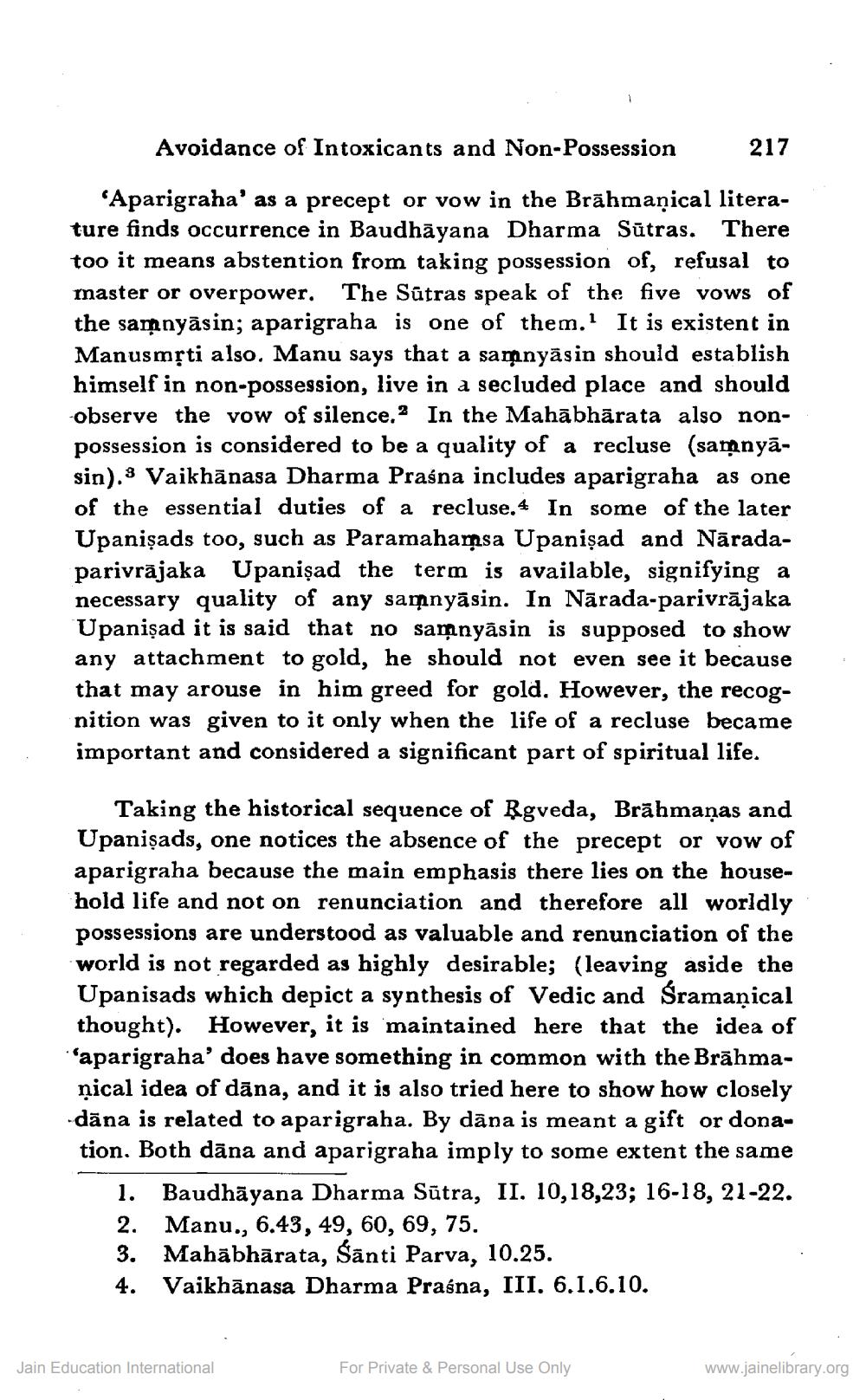________________
Avoidance of Intoxicants and Non-Possession
217
'Aparigraha' as a precept or vow in the Brāhmaṇical literature finds occurrence in Baudhāyana Dharma Sūtras. There too it means abstention from taking possession of, refusal to master or overpower. The Sūtras speak of the five vows of the samnyāsin; aparigraha is one of them.' It is existent in Manusmộti also. Manu says that a samnyäsin should establish himself in non-possession, live in a secluded place and should observe the vow of silence.2 In the Mahābhārata also nonpossession is considered to be a quality of a recluse (samnyasin).3 Vaikhānasa Dharma Praśna includes aparigraha as one of the essential duties of a recluse.4 In some of the later Upanişads too, such as Paramahamsa Upanişad and Nāradaparivrājaka Upanişad the term is available, signifying a necessary quality of any samnyāsin. In Nārada-parivrājaka Upanişad it is said that no saņnyäsin is supposed to show any attachment to gold, he should not even see it because that may arouse in him greed for gold. However, the recognition was given to it only when the life of a recluse became important and considered a significant part of spiritual life.
Taking the historical sequence of Rgveda, Brāhmaṇas and Upanişads, one notices the absence of the precept or vow of aparigraha because the main emphasis there lies on the household life and not on renunciation and therefore all worldly possessions are understood as valuable and renunciation of the world is not regarded as highly desirable; (leaving aside the Upanisads which depict a synthesis of Vedic and Sramanical thought). However, it is maintained here that the idea of aparigraha' does have something in common with the Brāhmanical idea of dāna, and it is also tried here to show how closely dāna is related to aparigraha. By dāna is meant a gift or donation. Both dāna and aparigraha imply to some extent the same
1. Baudhāyana Dharma Sūtra, II. 10,18,23; 16-18, 21-22. 2. Manu., 6.43, 49, 60, 69, 75. 3. Mahābhārata, śānti Parva, 10.25. 4. Vaikhānasa Dharma Praśna, III. 6.1.6.10.
Jain Education International
For Private & Personal Use Only
www.jainelibrary.org




